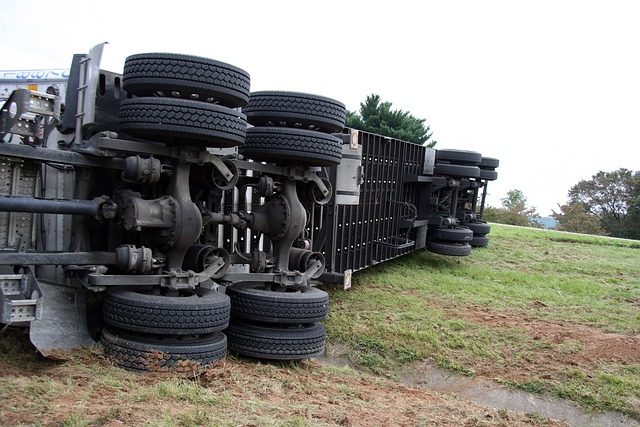To ensure the operational efficiency and longevity of your trucking fleet, it's essential to prioritize regular maintenance, which acts as a cornerstone for preemptive care. By integrating advanced telematics systems, you can continuously monitor vehicle health, allowing for prompt interventions that prevent minor issues from escalating. Secure your investment with physical protections like GPS tracking, high-security locks, and surveillance cameras to enhance asset protection and fleet management through precise location and condition data. Strengthen fleet security further by implementing a driver training program focused on defensive driving to minimize accident risks, protect drivers and cargo, and reduce costly repairs. Robust insurance coverage that anticipates a variety of potential incidents is also crucial for safeguarding your trucks and freight against unforeseen events. By adopting these multi-layered strategies—including regular maintenance, technological integration, driver education, and comprehensive insurance—your trucking operations will be resilient against a range of risks, securing the investment's longevity and effectiveness in the commercial transportation sector.
In the context of transporting high-value goods, security is paramount. The use of sophisticated tracking systems offering real-time monitoring and secure loading areas with surveillance systems are key measures to mitigate risk. Established transport companies specializing in handling high-value goods invest in tamper-proof trailers, robust locking devices, and provide staff with comprehensive training. They adhere to rigorous audits and strict industry best practices to defend against security threats during transit.
In the trucking industry, regular upkeep is non-negotiable for fleet longevity and performance. Consistent routine maintenance, including tire checks, filter replacements, fluid level monitoring, and component inspections, especially of engines, extends truck lifespan and mitigates expensive repairs. Predictive maintenance technology that analyzes sensor data to anticipate servicing needs before issues arise further optimizes fleet reliability, thereby averting downtime and reducing repair costs.
The integration of GPS tracking and telematics technology has significantly improved trucking operations' security measures. These systems provide real-time location monitoring, route optimization, and insights into driver performance to safeguard against theft or loss. With capabilities like fault code analysis and remote engine shutdown, they are indispensable for maintaining operational excellence, ensuring compliance with regulations, and reducing the likelihood of unauthorized access and cargo tampering in an era where technology plays a pivotal role in the industry's success.
safeguarding valuable assets in the trucking sector is paramount, given the substantial investment in both equipment and cargo. This article delves into robust strategies for protecting expensive trucking equipment and ensuring the secure transit of high-value goods. From fortifying fleets through best practices to maintaining trucks in top condition to prevent costly repairs, and leveraging cutting-edge technology like GPS tracking and telematics for heightened security, we explore comprehensive measures that enhance operational integrity within the trucking industry.
- Fortifying Your Fleet: Best Practices for Protecting Expensive Trucking Equipment
- Secure Cargo Transit: Strategies for Safeguarding High-Value Goods in the Trucking Industry
- Maintenance and Upkeep: Keeping Your Trucks in Prime Condition to Prevent Costly Repairs
- Investing in Technology: Leveraging GPS Tracking and Telematics for Enhanced Security in Trucking Operations
Fortifying Your Fleet: Best Practices for Protecting Expensive Trucking Equipment

In the realm of commercial transportation, safeguarding expensive trucking equipment is paramount to maintaining operational efficiency and ensuring the longevity of your fleet. Regular maintenance checks are a cornerstone in this endeavor; they help preempt mechanical failures and extend the lifespan of your trucks. Employ advanced telematics systems to monitor vehicle health in real-time, providing alerts for timely interventions before issues escalate. Additionally, invest in robust physical security measures such as GPS tracking, high-security locks, and surveillance cameras to deter theft and vandalism. These systems not only protect your assets but also streamline fleet management by providing accurate data on location and condition, enhancing both security and efficiency.
To further fortify your fleet, implement a comprehensive driver training program focused on defensive driving techniques. Well-trained drivers are less likely to be involved in accidents that could otherwise result in costly repairs or cargo damage. Regularly review and update your insurance policies to cover all possible contingencies, ensuring that your trucks and cargo are fully protected against unforeseen events. By combining proactive maintenance, cutting-edge technology, and robust training with comprehensive insurance coverage, you can create a multifaceted defense system for your trucking operations, safeguarding your investment against a wide array of risks.
Secure Cargo Transit: Strategies for Safeguarding High-Value Goods in the Trucking Industry

In the trucking sector, securing high-value goods during transit is a paramount concern for both carriers and shippers alike. To mitigate the risks associated with expensive cargo, employing advanced tracking systems that provide real-time monitoring is crucial. These systems not only enhance accountability but also enable swift action in the event of any suspicious activity. Additionally, using secure loading areas with surveillance can deter theft and vandalism, ensuring that once loaded, the cargo remains under watchful eyes until its destination.
Furthermore, the selection of reputable transport companies with a proven track record in handling high-value goods is essential. These companies often have specialized equipment designed for secure transportation, including tamper-proof trailers and advanced locking mechanisms. Furthermore, they implement rigorous personnel training programs to ensure that every employee understands the importance of safeguarding cargo and is equipped with the necessary skills to execute their duties effectively. Regular audits and adherence to industry best practices further fortify the security protocols, safeguarding both the truck and its precious cargo against potential threats throughout the journey.
Maintenance and Upkeep: Keeping Your Trucks in Prime Condition to Prevent Costly Repairs

Regular maintenance and meticulous upkeep are pivotal for maintaining the integrity of your trucking fleet. To prolong the life of your trucks and minimize the risk of costly repairs, it’s imperative to adhere to a rigorous schedule of routine checks and service. This includes monitoring tire pressure and tread depth, changing filters, checking fluid levels, and examining the overall condition of the vehicle. Engines, in particular, require diligent care; oil changes should be performed at recommended intervals, and all components from belts to hoses should be inspected for wear and tear. By doing so, you can prevent minor issues from escalating into major breakdowns that could impede your operations and lead to significant financial losses.
Investing in predictive maintenance technologies can further enhance the reliability of your trucks. These advanced systems analyze data collected from the trucks’ various sensors to predict when maintenance should be performed, thus preventing unexpected failures. By leveraging such tools, trucking companies can stay ahead of potential issues, ensuring their vehicles operate at peak efficiency and reducing the likelihood of costly, unscheduled repairs. The proactive approach not only safeguards your investment but also contributes to maintaining a steady flow of goods, fostering customer satisfaction and trust in your services.
Investing in Technology: Leveraging GPS Tracking and Telematics for Enhanced Security in Trucking Operations

In the realm of trucking operations, safeguarding expensive equipment and cargo is paramount. Modern advancements in technology have significantly bolstered security measures within the industry. Investing in GPS tracking systems has proven to be a game-changer for fleet management. These technologies enable real-time monitoring of vehicle location, route optimization, and provide critical data on driver behavior, which can help prevent theft or loss. Additionally, telematics integrates with GPS to offer a comprehensive suite of services including vehicle diagnostics, fault code analysis, and remote engine shutdown capabilities. This not only protects the assets but also ensures operational efficiency and compliance with regulations. By leveraging these sophisticated systems, trucking companies can fortify their operations against potential security breaches, ensuring the safety and timely delivery of their cargo.
Moreover, the integration of GPS tracking and telematics allows for proactive rather than reactive strategies in fleet management. These solutions provide insights into driver performance, adherence to schedules, and adverse conditions that could impact delivery times or route safety. This level of oversight and control minimizes the risk of unauthorized access to vehicles and the cargo they carry. With continuous updates on vehicle status and location, trucking companies can swiftly respond to any suspicious activities or potential security threats. As a result, these technologies are indispensable tools for trucking businesses aiming to maintain a competitive edge in an industry that is increasingly reliant on technology for operational success and security.
In conclusion, safeguarding expensive trucking equipment and cargo is a multifaceted endeavor that demands a robust approach encompassing the maintenance of vehicles, strategic cargo handling, and the judicious application of advanced technologies. By adhering to best practices outlined in “Fortifying Your Fleet: Best Practices for Protecting Expensive Trucking Equipment,” coupled with the implementation of secure cargo transit strategies detailed in “Secure Cargo Transit: Strategies for Safeguarding High-Value Goods in the Trucking Industry,” operators can significantly reduce the risks associated with their operations. Regular maintenance and upkeep, as discussed in “Maintenance and Upkeep: Keeping Your Trucks in Prime Condition to Prevent Costly Repairs,” are equally crucial to maintain equipment longevity and operational efficiency. Additionally, integrating GPS tracking and telematics systems, as highlighted in “Investing in Technology: Leveraging GPS Tracking and Telematics for Enhanced Security in Trucking Operations,” provides a modern solution to monitor and protect both assets and cargo. For trucking businesses looking to minimize losses and ensure the integrity of their operations, these practices are not just recommended but essential components of a comprehensive security strategy.
